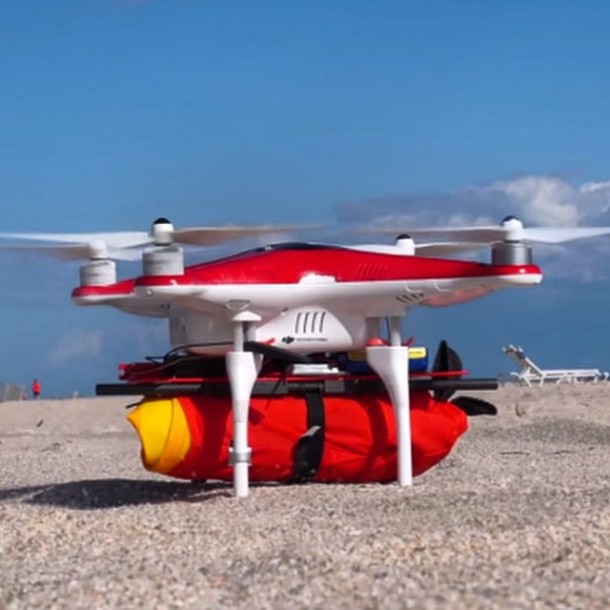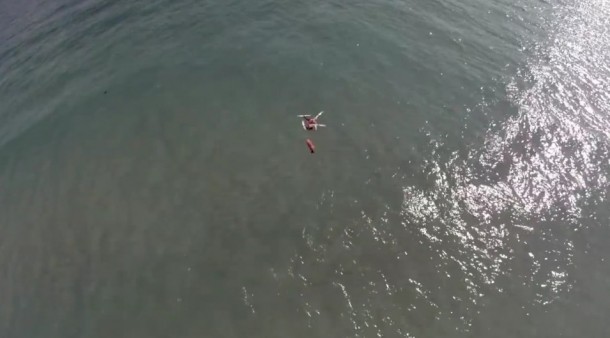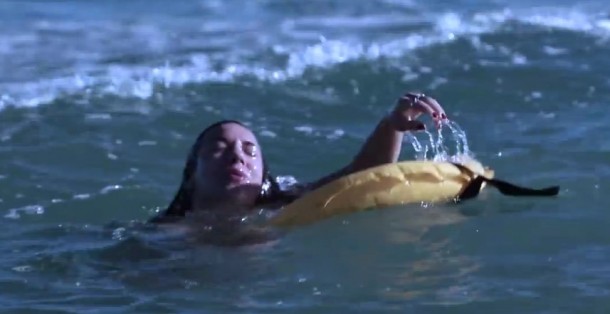Drones are the thing of the present and most definitely the future. Under a new project called Project Ryptide, a self-inflating life preserver ring snaps onto any drone capable of carrying a GoPro. Fly your drone out to the person in distress, tap a button and the preserver will snap off and fall into the water, releasing CO2 cartridges that will inflate the ring. Ryptide Drone is in the development stages at the moment but what it can do is pretty heroic. 
Once the life ring hits the water, it takes about three seconds for the life preserver to inflate. The Ryptide will come in three different versions. The basic version can be attached to any small drone without any tools. The multi-ring model carries up to four life rings that can be dropped at one time. The heaviest version can carry four life rings as well as a camera. 
The project was conceived by Bill Piedra, a part-time teacher at the King Low Heywood Thomas (KLHT) School in Stamford, Connecticut. He began working on the project in January 2014 and with students at KLHT, developed it further in September 2014. “Ryptide was designed so that anyone can be a lifeguard,” says Piedra. “We had the casual user in mind when we designed the basic model; someone that might take their drone to the beach, boating, a lake, or even ice skating. It could be useful in the case of someone falling through the ice while skating, for example.”
Ryptide weighs less than 420 grams, and attaches to a drone in seconds. It is triggered from the RC transmitter. The life rings used by Ryptide are reusable and can be recharged using a kit that will be available with the attachment. These rings have been SOLAS approved (International Convention for the Safety of Life at Sea). The United States Coast Guard Academy’s approval is still pending. The price of the device will start at $99 for the basic model.
Watch the video below for more!


